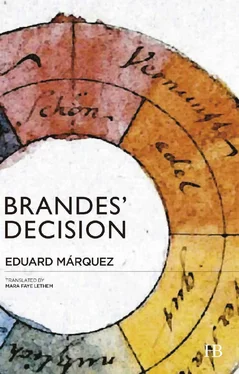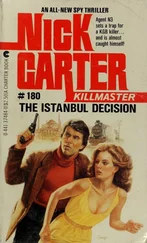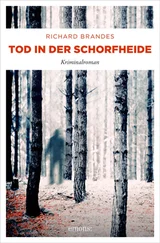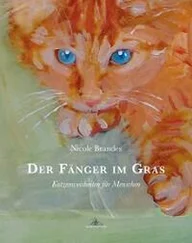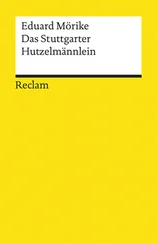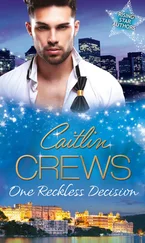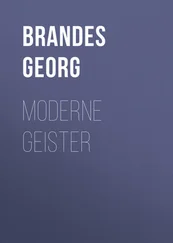Despite the time she spent in Ravensbrück, Alma never regretted having ridiculed the vile people who locked her up there. In fact, she was proud of it. She said that, when there was nothing more she could do, at least she never lost her convictions. Come to think of it, that seems like a good center for her chromatic star. That is if her figure is a star, of course.
I don’t know if, in my case, I can say the same thing. Ida Bienert, the first collector to buy one of my paintings, once told me that she liked my work “because it was honest,” but I don’t know if that has any relationship to “facing up to things.” I’ve always tried to be honest, that’s true. And engaged as well, but with my work. I’m just a painter in love with my work, which, after all, is where I had to end up finding my recompense. In fact, the only one that counts. I think I’ve achieved that. In the words of Braque,“the rest is just fool’s gold.” Before him, Herbert Kegel, one of the few teachers from the Academy whom I remember fondly, said: “If you work hard, without rushing or shortcuts, if you have enough patience, everything will come in due time.” Taking his classes was a privilege, because he wasn’t as inflexible or overbearing as the others and, in addition, he made us understand that a good teacher is just a trampoline and that, sooner or later, we had to jump on our own. Without fear of crashing. Professor Kegel didn’t lecture us when we made mistakes or didn’t follow his instructions to the letter. And when he saw that we were discouraged because the direction we’d chosen had led us to a dead end, his response was always the same: “Don’t complain. You know more than when you started: where you shouldn’t go.” And he smiled with satisfaction. He was quite a character. Squat, with very thick eyeglasses, a fluty voice and his shirt cuffs stained with paint. Enough to turn him into the butt of our jokes, as happened to other teachers who were actually much less tempting, but instead he won our respect by treating us as equals. I don’t know what happened to him. The last I heard was that Professor Müller, who had been promoted to rector of the Academy, had fired him because he was a Jew.
Yet being useful is a horse of a different color. Alma said that, acting in the cabarets, she had felt useful. I can understand that. I suppose that painting can also be a way to be useful, but that wasn’t my intent. It’s much simpler than that. For me, it’s not about understanding the world or embellishing it. It’s not about capturing the meaning of my existence or beating death. I’ve only ever wanted to be happy doing what I love. If, in doing so, I’ve given someone else a moment of comfort or if, as Matisse longed for, a painting of mine has become an armchair to provide relaxation from fatigue, that’s fine with me. I feel the same way about life. I’ve never had grand pretensions. And I don’t regret this now that it’s nearing its end but, if I were looking for weak points, maybe I wish I’d been a bit more involved. I’ve too often been just a slack-jawed onlooker.
One morning while I was drawing, a European goldfinch approached a thistle that had somehow survived just past the trench’s parapet. After a week of rain, the intensity of its colors amid the mud was like an offering. The red of its face, the yellow patch on its wings, the white of its chest and legs, the black of its tail. . They were so vivid that it seemed someone had cut it out, as if it were a collage, to paste onto the brown of no-man’s-land. When I saw it, I remembered my father, in front of Raphael’s Madonna of the Goldfinch , telling me that Grandma Johanna had one and that sometimes she would take it out of its cage and let it take food from her lips. “Yeah, I knew that already. And she would talk to it,” I added. My father’s jaw dropped. Then I confessed that, one day, spying on her, I’d caught her explaining to the bird how she’d just gotten mad at me because, as usual, I didn’t want to take a bath.“As I live and breathe,” she complained. “That boy is so stubborn.” When she stopped talking, the goldfinch warbled. I had followed my grandmother to find out if she was very cross, and I went over and asked her, naively, what the bird had answered.“That, if you don’t bathe more often, you will get all scabby and turn into a scarecrow.” But when she saw my horrified expression, she started to laugh and gave me a hug. “Aren’t you a gullible one!” she said while I pressed myself up hard against her chest and breathed in the scent of camphor that came through her clothes. While the goldfinch pecked at the thistle seeds, I thought that it wasn’t that hard to turn into a scarecrow. You just had to live in a trench with water up to your knees. The only difference was that the itchiness from the lice made it impossible to stay still. I drew a couple of sketches of the bird with my colored pencils and, for a few moments, it seemed that the smell of Grandma Johanna drowned out the disgusting stench coming off of me and the mud filled with dead bodies. But the calm didn’t last long. A shot broke the silence and turned the goldfinch into a clump of bloody feathers. I remember that the seconds it took the thistle stalk to stop moving seemed like an eternity.
How do you paint the stillness of a dead bird? It took me a long time to answer that question and, when I think about it, I realize I wouldn’t have been able to, not before I shifted direction after Variation on a Theme by Bruegel . That painting represented the end of a period, since it was the culmination of my research into the figurative reproduction of reality. I no longer needed to go any further. Almost without realizing it, and thanks to Kandinsky’s influence, I veered toward abstraction. Reading Concerning the Spiritual in Art , with its allusions to the inner life of the creator and renouncing figuration, was a jolt. No other book has ever opened so many doors for me.
After Variation , color became the primary focus of my research. After many years, everything started to come together: my father’s stories, my rejection of the academy, the lessons of Matisse, my fascination with chromatic color harmony. . The large canvases — stretched out on the studio floor so I could work on them from the inside — became bursts of color, in seemingly chaotic compositions of splotches and forms with no link to reality, but which aspired to convey everything that was bubbling up from my viscera. They weren’t very popular, but the support of a small group of collectors and galleries allowed me to keep working. I don’t know what I would have done without the enthusiasm of people like Hans Goltz, Alfred Flechtheim, Ida Bienert, and Eugen Kirchhoff, who, one day, when I thanked him for buying a painting, answered: “Without painters like you, the world would be more gray and desolate.” I had never been told anything so lovely.
But I didn’t find my definitive path until Alma came into my life. Without meaning to, when she recalled her modeling sessions with the SS in Ravensbrück while I painted her body, she gave me the solution. Finally, everything fit. Her wish for the colors of the SS officer’s palette to embellish her pained body, the sordidness of the barracks, and the arrogant gaze of the officer coincided with my desire to transform the reality of the trench in order to bear the stench of the half-buried bodies, and putrefying no-man’s-land. Soon after, taking advantage of increasingly longer stays in Hauterive, I began to work directly on the landscape, painting tree trunks and branches, fern leaves, rocks in the forest, and snow in the garden. I had never worked on such a vast canvas. Endless. And I was able to close the circle my father had opened when we went on walks to gather the elements we needed to make our own paints. I was returning to nature the pigments it had given me.
Читать дальше
